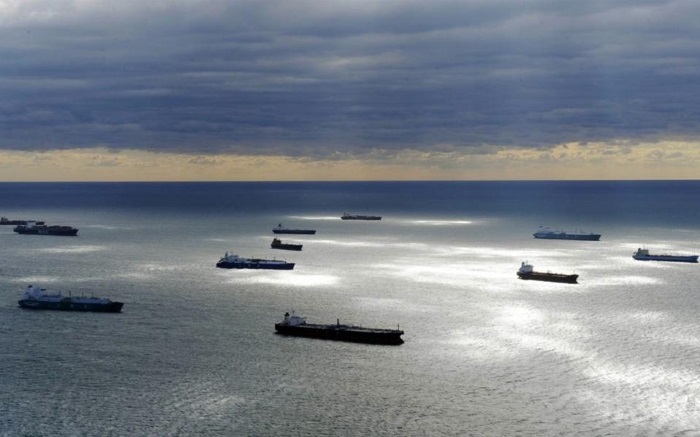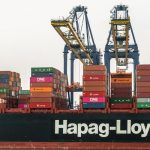In the fourth quarter of last year, the annual performance of South Korea’s largest container shipping company HMM and bulk carrier operator Pan Ocean plummeted due to a slump in the shipping industry.
According to financial information firm FnGuide on Jan. 8, the estimated performance consensus for the fourth quarter of last year for HMM showed a revenue of 2.06 trillion won (US$1.56 billion) and an operating profit of 21.5 billion won. HMM had been witnessing a notable downturn in performance since the first quarter of the previous year compared to a year earlier and continued to experience declines in each subsequent quarter. As a result, HMM was expected to see a substantial year-on-year decrease, with annual revenue projected to drop by 54.7 percent to 8.41 trillion won and operating profit to decline by 94.3 percent to 562.7 billion won for the last year.
The dismal performance can be attributed to the downturn in the shipping industry. The domestic shipping sector experienced a boom in the aftermath of the logistics bottleneck caused by the COVID-19 pandemic in 2022. In addition, the Shanghai Containerized Freight Index (SCFI), which represents global container freight rates, also reached an all-time high of 5,109.6 points after index consolidation, contributing to HMM’s record-breaking performance.
However, the index saw a sharp drop in the face of a decline in shipping volume due to the global economic downturn. After fluctuating above the 1,000-point mark for over six months since March of last year, the SCFI hit a low of 886.9 points in September, marking its lowest level in 40 months. Despite the shipping industry typically viewing the second and third quarters as peak times, there was no rebound in the index during this period. As a result, HMM’s performance in the third quarter recorded an “earnings shock,” falling below the consensus forecast set by the securities market analysts.
For bulk carrier operator Pan Ocean, which transports raw materials such as steel, coal, and grain, the consensus for the fourth quarter of last year indicated a revenue of 1.15 trillion won and an operating profit of 106.1 billion won. This represents a decrease of 19.2 percent and 32.5 percent, respectively, compared to the previous year. On an annual basis, the total revenue amounted to 4.49 trillion won, with an operating profit of 425.7 billion won, reflecting a 30 percent and 46.1 percent reduction in scale compared to the previous year.
Despite expectations of a persistent overall downturn in the maritime industry this year, geopolitical risks have emerged as a new variable for the shipping sector since the beginning of the year. Currently, Houthi rebels in Yemen, backed by Iran, have been attacking ships passing through the Suez Canal since last month. In response, global shipping companies are diverting their vessels around the Cape of Good Hope in Africa. Consequently, ships now require an additional 6,500 km of travel, leading to an extended transit time of seven to eight days compared to the usual route. Simultaneously, maritime logistics challenges have arisen, leading to a significant surge in freight rates.
Source: Hellenic Shipping News






